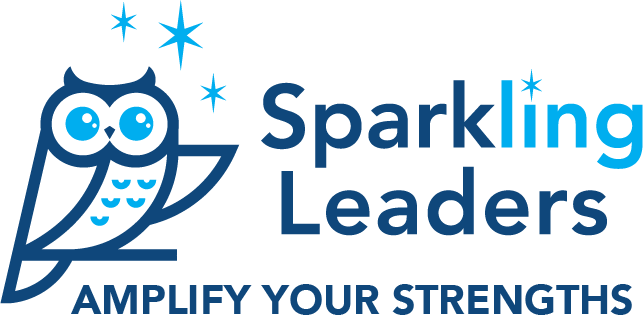Starting Your Practice
Below is a working document with items I’ve used to start my practice. Let me know if these help you and if you have any suggestions.
My goal has been to test out products and try to keep costs low.
Business Name: Figure out the name you want to do business as, and check to see if the domain is available. I used https://www.whois.com/whois/ to check on my name.
Website hosting company. I’m using https://www.squarespace.com/, other people like Wix, Wordpress.org, Wordpress.com, or Kajabi
Email client: I use Google Workspace for email, calendar, and files (Docs, Sheets, and Slides).
Session location: Mine are virtual on Zoom - I bought the Zoom Pro license. Some people use Google Meet or Teams.
Contact information: I didn’t want to use my home or personal cell for certain communications. I rented a small box at our local UPS store and bought a Google Voice account. I include my phone number on my contracts for people to text me if they need to reschedule.
Type of business? Decide if you want to incorporate. I chose to create an LLC and used LegalZoom with the help of a lawyer. LegalZoom can do everything, however, there were a lot of decisions, and I wanted help making them.
Business model: You will need to know how much money you need to make. List your basic expenses and then add a buffer. Think about how many sessions you want to run a week or month and then calculate how much you will need to make to meet your goals. Keep in mind that it might take time to ramp up. Decide if you are going to offer your Getting to Know Each Other (Chemistry) sessions for free and how long they should be. A free 30-minute session is common. Create a spreadsheet to track your expenses and sessions.
Payments: I am starting to use Stripe with Authy and just opened a business bank account.
Scheduling: I use TidyCal for calendaring (lifetime charge of $29). Others like Calendly.
Contracting: There are multiple ways to keep track of contracts. I use BreezeDoc. Others like Docusign and Adobe. Google Workspace now has a tool that I haven’t tried.
Marketing: Consider where your clients are, what they need, and what you can do (Ikigai…). There are lots of suggestions about how to market. The secret is to find something you like to do so it’s authentic to you. New platforms are always trying to get followers. I try to post on LinkedIn where I have a number of business contacts. I used to post more on Instagram with my images, and I upload a few videos to YouTube. The algorithms change often.
Other purchases
Data storage: I bought a Samsung Portable SSD T7 Shield 2T drive to store recordings.
Books: I love books and have multiple coaching books! I buy some new, some used, some on Audible, and I also take books out of the library.
Training courses: I love learning. Some of my courses are year-long for certification and others are individual sessions of interest. I found joining the International Coaching Federation (ICF) to be very beneficial. There are a lot of free sessions on a range of topics. Our local ICF chapter has excellent programming and opportunities for connection. If you are in a smaller chapter, you can often attend sessions from other chapters.
Additional Software: I use Procreate for my iPad drawings and am about to stop using Adobe products due to a price increase. Some people love Canva. I like having more control but also spend more time creating things.
I do not have a social media scheduler, CRM (other than a Google Sheet), project management system, or sales page.
Credentials, Training, and Assessments
Board Certified Coach (BCC) through Center for Credentialing & Education: must have a BA or higher, 30 hours of coaching endorsed by a professional, 120 hours of training, professional endorsement, challenging exam (requirements based on my PhD not counting since it’s in a science field)
International Coaching Federation (ACC, PCC, MCC). ACC requirements: 60+ hours of coaching education, 100+ hours of coaching experience, 10 hours of Mentor Coaching with an eligible mentor coach, Successful completion (passing score) of a performance evaluation, Successful completion (passing score) of the ICF Credentialing Exam.
Positive Intelligence: Many coaches participate in free PQ training. I liked most of the training but found some of it to be too negative and I was concerned about sharing it with anyone who has experienced trauma. I chose not to pay for the next steps.
Energy Leadership Index Assessment (ELI): I love the ELI and am now trained through iPEC. It helps me reflect on the energy I’m spending on tasks and where I want to be. I have a number of blog articles about it. Here is the 7 Levels of Energy Leadership book summary and how I applied Energy Leadership to my broken fifth metatarsal. I also examine energy in my monthly intention tracking sheets.
Emotional & Social Competency Inventory (ESCI) From their website: “Become confident in the concepts of emotional and social intelligence”
Harrison: I like the reports generated and am planning to become certified. From their website: “Predictive Analytics to Acquire, Develop, Lead & Engage Talent” and “Harrison is a two-way assessment because it measures the degree to which the employer and employee will meet each other's mutual needs and expectations.”
THE KOLB EXPERIENTIAL LEARNING PROFILE (KELP): I like this assessment for helping people better understand their work styles. From their website: “based on experiential learning theory and is designed to help individuals identify the way they learn from experience.” They are $35 each.
